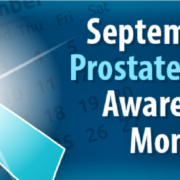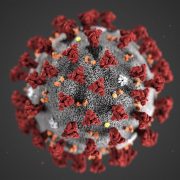Right Track to a Healthy Heart
Cardiovascular disease, also known as heart disease, is the leading cause of death in this country. Just as there are many misnomers, there are many different views of what causes heart disease. While focusing on heart disease from a different lens in hopes of discovering the true culprit, it’s important to acknowledge that science is always being tested and retested; hence, today’s tips and insights may change over time, in the overall effort to get it right. The views below are my views and those of a growing number of physicians and healthcare professionals.
Typically, one of the first questions I often hear is, what causes heart disease?
Fat is one idea often mentioned as a cause behind heart disease, but that’s not always the case.
It is also believed that cholesterol contributes to heart disease, but that is also in doubt.
I am happy that I am not the only one saying this.
The Telegraph also discussed their extensive research in debunking cholesterol’s role in heart disease, stating “Lowering cholesterol with medications for primary cardiovascular prevention…is a total waste of time and resources.” Primary prevention is classified as preventing the first episode of an illness. So primary prevention for heart disease is preventing the first heart attack. Secondary prevention would be aimed at people who have already had a heart attack.
So what does cause heart disease? I believe it’s a lifelong energy imbalance, what you eat and what you burn, combined with how well your body safely processes and stores energy. A major part of this process has to deal with the hormone insulin. One of Insulin’s most important jobs is to store excess energy, as mostly fat, which can be used in the future when you’re low on energy (i.e. illness, fasting, exercising, etc.). The problem however lies with excess fat. Excess fat from both the fat in foods, and the carbohydrates you eat can be stored in fat cells. Interestingly the excess carbohydrates are converted to fat to be stored.
However, our body’s ability to store fat is not unlimited. When fat cells reach their storage limit, they begin to resist any more energy intake, from the likes of insulin, which lead to what we call Insulin Resistance (IR). Short term insulin resistance (IR) isn’t harmful and may even be protective for the body, however long term IR can be extremely harmful.
The following may occur if you have chronic Insulin Resistance:
Obesity
High Blood Pressure
Diabetes
Heart Disease
Dementia-Alzheimers
Fatty Liver
Many, many others but the above items account for much of what most physicians treat in their practices.
When the body deals with long term IR, this excess fat, as a result of high insulin intake, leads the fat to dangerous places in the body where it was not meant to be.
Where can this fat go?
• Retinas – Which can lead to vision issues
• Liver – Can lead to fatty liver, obesity, diabetes, and cirrhosis
• Kidneys – Can lead to reduced kidney function, which can ultimately lead to dialysis
• Skin – Can lead to skin infections, skin tags, and/or old skin
• Pancreas – Can lead to diabetes, pancreatitis
• Artery walls – Leads to heart disease
The last might be the worst of all. Excess fat in artery walls leads to plaque, which in turn can build up, thicken, and stiffen artery walls, which makes blood flow through your arteries to your organs and tissues very challenging. Unbalanced diets that increase levels of insulin, coupled with lack of exercise, and unhealthy habits like smoking, all rapidly increase your chances of heart disease.
However, the first step in prevention is to alter your diet and lifestyle to reduce insulin resistance.
How do you do this?
• Eat fewer carbs
• Eat less often (consider Intermittent Fasting) (IF)
• Exercise more (start burning your stored-up energy) – this allows for more safe energy storage.
• Sleep better with normal day-night cycle – this balances your cyclical hormones
• Reduce your stress
• Avoid cigarettes
• Keep alcohol moderate to low
If you’re interested in more ways to keep your heart safe, or any of the other disease processes that Insulin Resistance causes, and would love some counselling on how to prevent/reverse these disease process from starting or advancing, don’t hesitate to call your R-Health doctor and schedule and appointment.



![Back 2 [Healthy Food]](https://www.r-health.md/wp-content/uploads/2017/09/Back-2-Healthy-Food-180x180.png)









Leave a Reply
Want to join the discussion?Feel free to contribute!